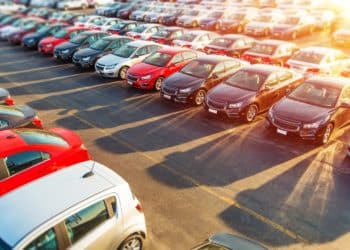Future of Mobility, Part IV: Where Fintech and the Cloud Come In
Fintech. The cloud. Digital wallets. Blockchain. These are all buzzwords typical to the banking and payments space, but within the mobility landscape they are only starting to gain traction.
But that does not mean these terms are insignificant or that they aren’t actively playing a role in the transformation of mobility consumption or auto finance. With experience replacing utility as a key motivator behind a vehicle purchase, dealerships are likely to shift to showrooms, (like what Tesla has been doing for years), according to a study from Deloitte Consulting. Because of this, auto finance companies will need to offer an origination process to match that experience — with “near-instantaneous mobile loan generation and approval enabled by secure digital authentication,” the report said.
As part of a larger discussion on what’s taking place within mobility and auto finance (view Part I and Part II and Part III), co-author of the study, Cameron Krueger, spoke with Mobility Finance about the expanding role of fintech in auto finance, the use of the cloud and blockchain, and the push for the car as a digital wallet.
Fintech companies are working hard to change the lending landscape and some of the consumer buying behaviors, Krueger said. Thus, traditional players in the space should follow suit: Auto captives, in particular, have been good at getting on the fintech train, he said.
“Auto captives are excelling in [asking and answering] ‘How do I make the car and the people in the car, act as wallets?’” he said. “It’s not just a car anymore — it’s my shared bike services, the train, the parking at the airport and it’s my [every day] transportation. I haven’t seen a fintech yet that can successfully integrate the payment across the entire ecosystem and capture the picture of a granular level of how mobility is being consumed.”
But a granular level understanding of mobility consumption requires a lot of data processing power and a place to store that data, which is where the cloud may play a role, he said. After all, the “digital exhaust” can have significant value for auto financiers, because it could be analyzed to optimize auto lenders’ own operations. It can also be offered to third parties interested in, for example, targeted advertising, according to the Deloitte report. But blockchain will also continue being an important player in the data storage space, Krueger said.
“People think it’s an incredible enabler,” he said, adding, “It’s fast, it’s inexpensive, it’s very secure. So, as an auto lender — do you want to be on someone else’s blockchain or do you want to have your own? Most of the captives are doing some stuff with it.”
















